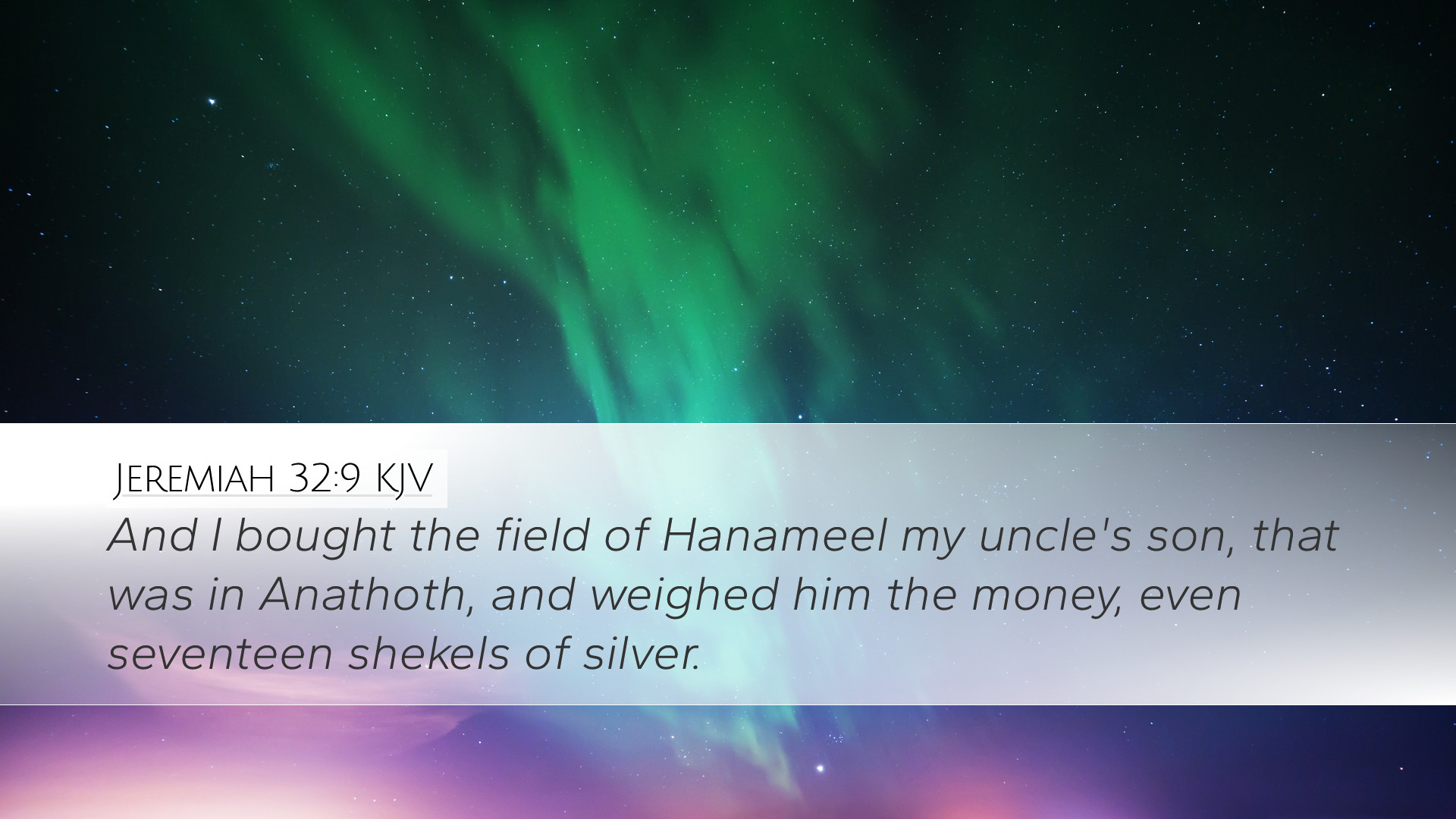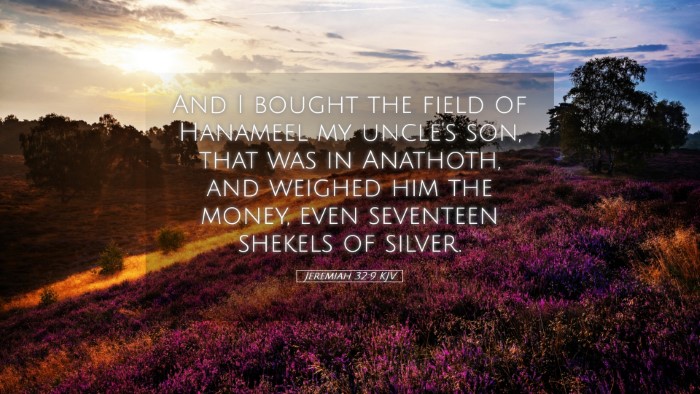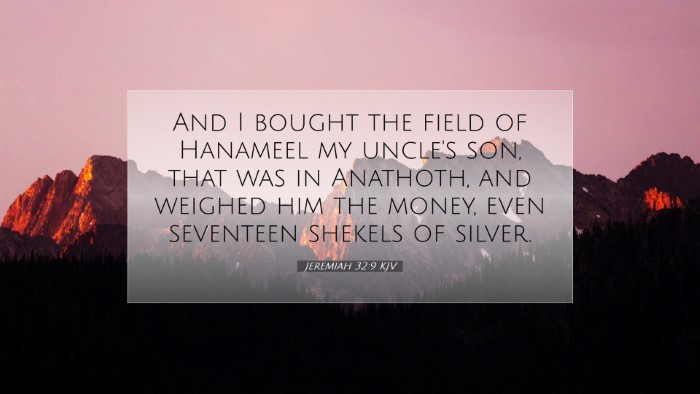Commentary on Jeremiah 32:9
Jeremiah 32:9 states: "And I bought the field of Hanameel my uncle's son, that was in Anathoth, and weighed him the money, even seventeen shekels of silver." This verse plays a crucial role in understanding the prophetic actions of Jeremiah and the larger narrative of Israel’s exile and hope for restoration.
Contextual Overview
This event occurs during a time of looming doom for Jerusalem and Judah, foreshadowing their impending exile due to their disobedience to God. The act of purchasing a field is not only significant for Jeremiah personally but serves as a profound message about faith and hope amidst despair.
Matthew Henry’s Insights
Henry emphasizes that Jeremiah’s purchase of the field is an act of faith. He argues that it demonstrates Jeremiah's belief in God’s promise of future restoration for Israel:
- Symbol of Faith: Henry highlights that even in the face of destruction, Jeremiah's action signifies unwavering trust in God's Word that the land would once again be inhabited by the Israelites.
- Buying a Field: In Henry's view, acquiring property during such dire circumstances illustrates the importance of investing in God's promises, hinting at a future revival.
- Divine Assurance: Henry suggests that this purchase was divinely sanctioned, revealing how God uses ordinary events to convey profound truths.
Albert Barnes’ Examination
Barnes provides a detailed allegorical interpretation in his commentary:
- Legal Validity: Barnes notes the importance of the legal transaction, emphasizing the integrity and public nature of the purchase which served as a witness to the coming restoration.
- Theological Significance: He elaborates that despite being in chains and witnessing destruction, Jeremiah’s act was a testament to God’s unfailing promises, showcasing that hope should prevail even in dire circumstances.
- Seventeen Shekels of Silver: Barnes analyzes the monetary transaction, suggesting it points to God’s careful provision and the value of faith as a currency in trials.
Adam Clarke’s Perspective
Clarke focuses on the prophetic significance of this narrative:
- Prophetic Symbolism: He asserts that Jeremiah’s act of buying the field serves as a prophetic symbol that restoration is not only possible but assured by God’s promise of redemption.
- Historical Context: Clarke contextualizes the purchase by detailing the significance of Anathoth, noting it was a Levitical city, stressing the permanence of God’s covenant with Israel.
- Encouragement for the Faithful: His interpretation serves as an encouragement for the faithful to remain steadfast, as God's plans continue, even when circumstances suggest otherwise.
Applied Themes for Pastors and Theologians
The themes in Jeremiah 32:9 offer several applicable insights for ministers and students of theology:
- Faith in Action: The narrative emphasizes that faith often requires tangible actions; purchasing a field amidst devastation exemplifies active faith.
- Hope Amidst Despair: Pastors can draw parallels between Jeremiah's situation and the present-day struggles of congregants, promoting a message of hope based on God's promises.
- The Importance of Obedience: Scholars can explore the relationship between obedience and divine providence, highlighting how Jeremiah's adherence to God's command leads to profound implications for future generations.
- Symbolism of Land and Restoration: The land purchase signifies a deeper theological conversation about inheritance, identity, and restoration for believers today.
Conclusion
Jeremiah 32:9 stands as a powerful verse that encapsulates the themes of faith, obedience, and divine assurance even in the darkest times. As believers reflect on this text, they are reminded of God's unchanging nature and the hope that exists in His promises, serving as both a historical testament and a relevant application for contemporary faith.


